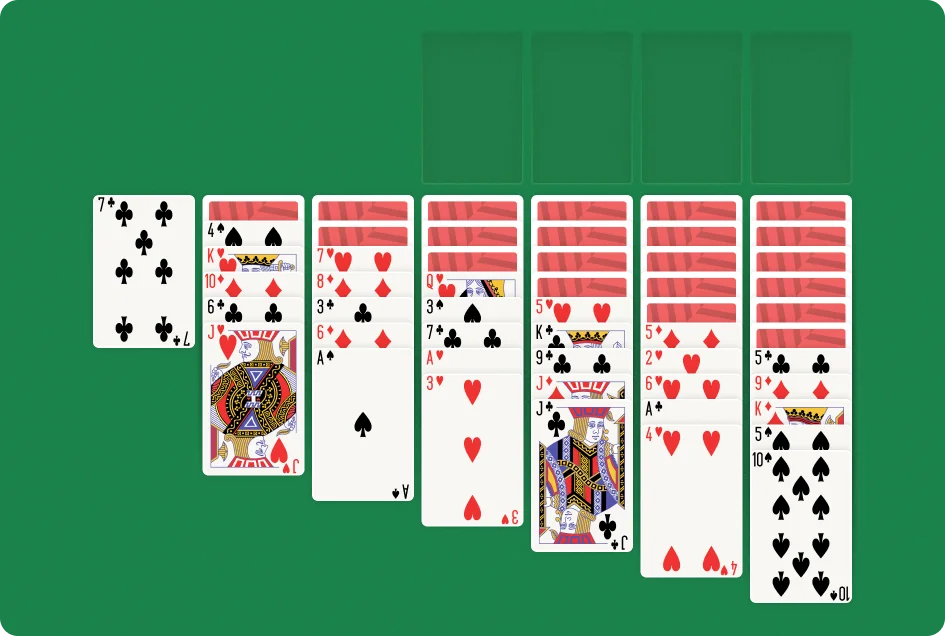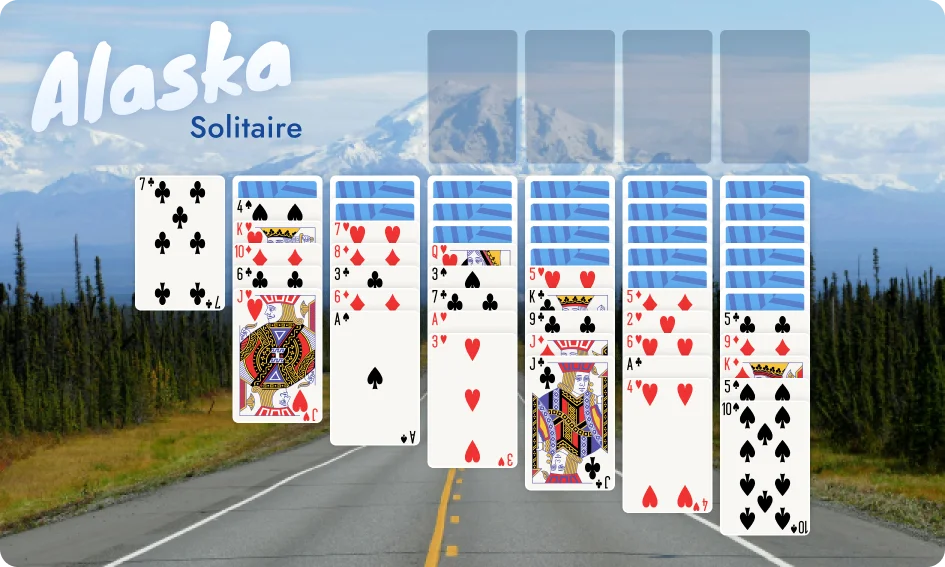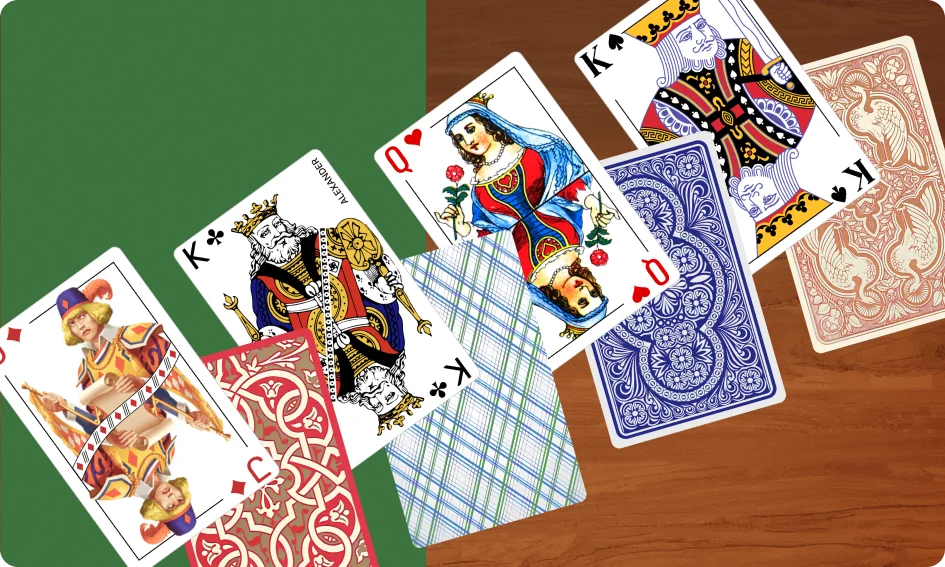It’s not uncommon to find Solitaire variants that are named after frost-covered landscapes. This is because many of them can be traced back to these areas. Alaska Solitaire is no different. It shares its icy heritage with the famous Yukon Solitaire, which is, in turn, a variant of the classic Klondike Solitaire. If you’ve played either of these variants, then it shouldn’t be much effort for you to get the hang of Alaska Solitaire.
Alaska Solitaire has a relatively recent date of birth. It first appeared in 1996, when it was included in the Solitaire game collection Pretty Good Solitaire. I first encountered Alaska Solitaire while playing Pretty Good Solitaire on my school computer. Intrigued and somewhat confused, I decided to give this variant a shot. I ended up instantly adding it to my list of Solitaire favorites. This variant presents a fresh twist for those who are bored of playing Yukon. One wonders why no one ever thought of developing it earlier.
How to Play Alaska Solitaire

Alaska Solitaire is a perfect example of how making the slightest change to existing Solitaire games can result in novel and intriguing variants. This is precisely why I love playing Alaska Solitaire.
You might be looking for some novel Solitaire gameplay or you might be a newcomer to the amazing world of single-player card games. Either way, you’ll want to know how to play Alaska Solitaire. Here’s a comprehensive guide that walks you through everything you need to know.
Game Setup
- To begin the game, you lay out seven columns in the tableau. The first column contains one card, the second six cards, the third seven cards, and so on until you reach the last column, containing 11 cards.
- The card in the first column must be placed face-up. However, the other columns contain both face-up and face-down cards. So, you must place the first card in the second column face-down and the proceeding cards face-up. Place the first two cards in the third column face-down and the proceeding cards face-up, and so on. In the last column, place the bottom six cards face-down, with the rest face-up.
- There also are four foundation piles, each representing one of the four suits (Hearts, Diamonds, Clubs, and Spades). Here, you must organize cards by suit in ascending order from Ace to King.
Game Rules
- The objective in Alaska Solitaire is to move all the cards in the tableau to the four foundation piles (in ascending order according to the suit). This means that your foundation piles will begin with Aces and build up to Kings.
- You can move the last card in each pile from the tableau to the foundation pile of its suit.
- In the tableau columns, you can move the top card from one pile to another pile. The card must, though, be the same suit as the card you place it on and should be in either ascending or descending order. For example, you can place a Seven of Diamonds on an Eight of Diamonds, or vice versa.
- You can also move cards in groups regardless of their order. The only condition is that the last card in the pile you are moving must be the same suit and one rank lower or higher than the card you are placing it on. For example, if you have a group of cards containing a Six of Hearts, Eight of Spades, and Four of Clubs (with the Four of Clubs being the top card in the column), then you can move this group onto either a Five of Hearts or a Seven of Hearts.
- Only a King can be placed in an empty tableau pile.
- You win the game when you’ve moved all 52 cards into the foundation piles.
Tips and Strategies For Winning At Alaska Solitaire
As mentioned, the game isn’t very different from Yukon Solitaire. The only difference is that you can move tableau cards in either ascending or descending order. But, even with this additional layer of flexibility, the game is no easier than it was before. Alaska Solitaire has a remarkably low win rate; some sources report it to be as low as 5%!
This statistic might be daunting, but don’t let it intimidate you. Starting off, I struggled a lot with this game. It took a while before I managed to clear the tableau for the first time. Due to some invaluable tips from a (much more experienced) friend, I did, however, improve over time.
Here are some of the best tips and strategies. These are guaranteed to amp up your Alaska Solitaire skill level:
| Strategy | Details |
| Try to move cards in groups. | In other Solitaire variants, you’re just looking at the top cards for possible moves. In Alaska Solitaire, you must analyze the entire column to find any buried cards you can move as part of a group to another column. |
| Clear empty piles. | Make it your priority to clear empty tableau piles. This allows you to reveal more face-down cards, which can open up game-winning moves. |
| Don’t save up the Aces. | Aces are the first card you put in the foundation piles. So, move them there as soon as you spot them. They serve no purpose sitting on top of your tableau columns. |
| Take your time before making a move. | Patience is your best friend in this game. Always think through your moves to ensure that you’re making optimal combinations. |
Conclusion
Alaska Solitaire is a challenging game with simple rules. It is the perfect way to ward off boredom. So, don’t forget to pay this variant a visit from time to time. There are few things as satisfying as seeing all your tableau cards neatly aligned into four stacks when you savor a win!






